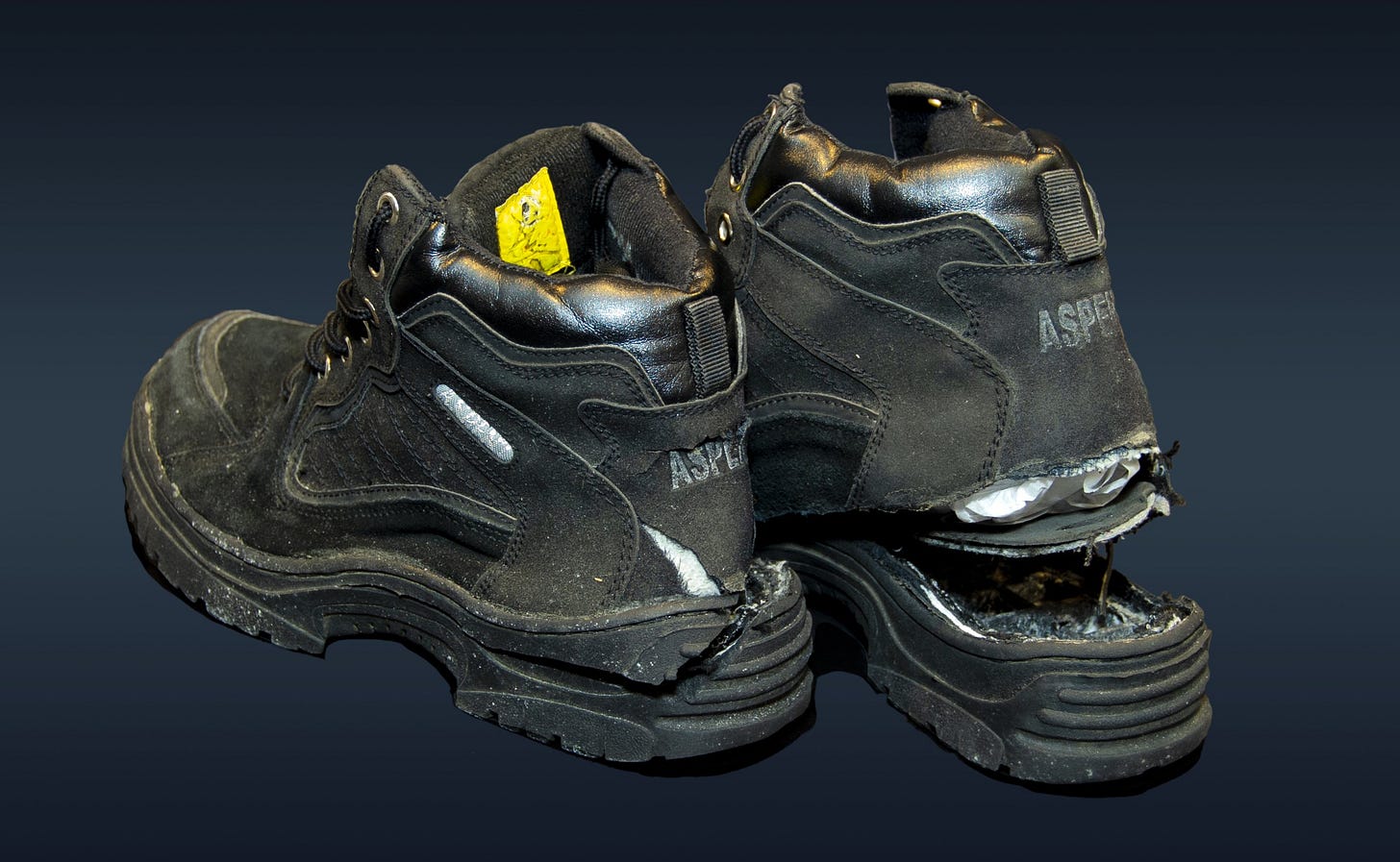On the evening of 22nd of December, 2001, 197 passengers and crew stood at the security screening checkpoint after an incredibly stressful day of travel. They were supposed to have arrived in Miami many hours earlier but, instead, were diverted to Boston’s Logan International Airport because a man had tried to ignite explosives secreted in his Aspen high-top shoes.
They were grateful that their lives were spared, of course. Two heroic flight attendants—Cristina Jones and my friend Hermis Moutardier—fought Reid and were soon joined by passengers who helped subdue the hulking al-Qaeda operative. Just 100 days had passed since the 9/11 attacks, and passengers understood that the heroism of those who stopped United 93 from striking the U.S. Capitol set a necessary precedent: everyone must help to prevent terrorism aboard aircraft.
Now they waited to board their flight to their final destination after a scary afternoon that included a brush with death and interviews with federal agents. Just as they were about to go through screening came word that all the passengers must remove their shoes for x-ray and explosives screening before boarding.
It was a smart decision. No one could be absolutely certain that Reid was working alone. Perhaps another of the passengers had hidden plastic explosives in their shoes. Thankfully, none had. Finally, with a fresh flight crew called in (union rules), the passengers traveled to Miami without further incident.
I was the lead responding security special agent for the federal government at Logan Airport that night, and my colleagues and I knew we had just dodged a bullet. Had Reid succeeded it would have meant the loss of nearly 200 innocent people, another tragic blow against the West, and even more devestation to the airline industry. The psychological and economic impacts are frightening to contemplate.
Still, no one there that night could have predicted that nearly a quarter-century later, passengers would still be removing their shoes. Surely, in that time, security officials would either 1) develop a more targeted approach than screening everyone’s shoes, or 2) develop technology less burdensome on the traveler. But neither happened.
For years after that incident, I recall the late Senator Ted Kennedy being assisted by his wife as he removed his shoes at the checkpoint, the effects of a broken back suffered in a plane crash decades earlier making the process very difficult. I would often meet him at there and wonder to myself exactly who it was that thought he might take down an airplane with shoebombs. I had no power to exempt him. Neverhtheless, he always readily complied and treated the TSA screeners with good cheer (unlike John Kerry, who was notoriously rude and downright mean to the staff).
Sure, trusted traveler programs came along many years later that allowed for a small percentage of passengers to keep their shoes on. But by and large, air travel meant you would be in stocking feet on a filthy floor at some point during your visit to an airport.
Kudos to the leadership at the Department of Homeland Security for ending the shoe removal policy this week. Rare is the measure implemented by the government that is ever rolled back. Moreover, in a culture obsessed with fingerpointing, it takes a bold bureaucrat to end a security policy. Who wants to be that person sitting across from a Congressional panel getting blamed for an aircraft exploding? If there is one thing that high-ranking government administrators know it’s that feckless Members of Congress cannot wait to score themselves a viral moment on social media indignantly lambasting them for some bad act that they themselves took no action to prevent.
There’s a better way, of course. Screening should be targeted, and TSA knows that. That’s why TSA Pre-Check exists. Known travelers who have undergone background checks are exempted from the full monty. Still, it makes one wonder why, say, an employee at Raytheon who has a Top Secret background clearance and spends her days working on the Patriot Missile program and supporting our warfighters must remove her laptop from her bag when going through security.
The DHS should take more steps to pare back screening at airports so that the resources it has can be concentrated on people about whom little is known. That would make a lot more sense and make the process as a whole much less frustrating. One hopes this is just the beginning.




